#UK immigration policy
Explore tagged Tumblr posts
Text
The most important Barbie piggybacking campaign I’ve seen so far. Fuck UK immigration policy.
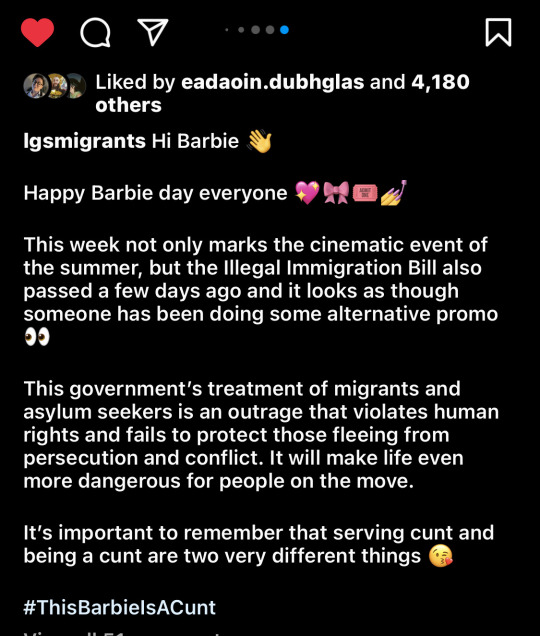

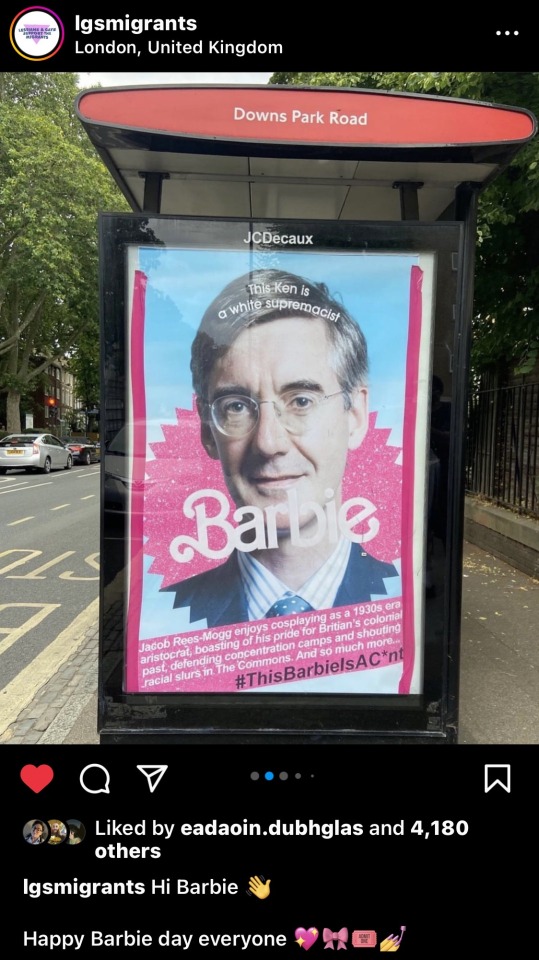
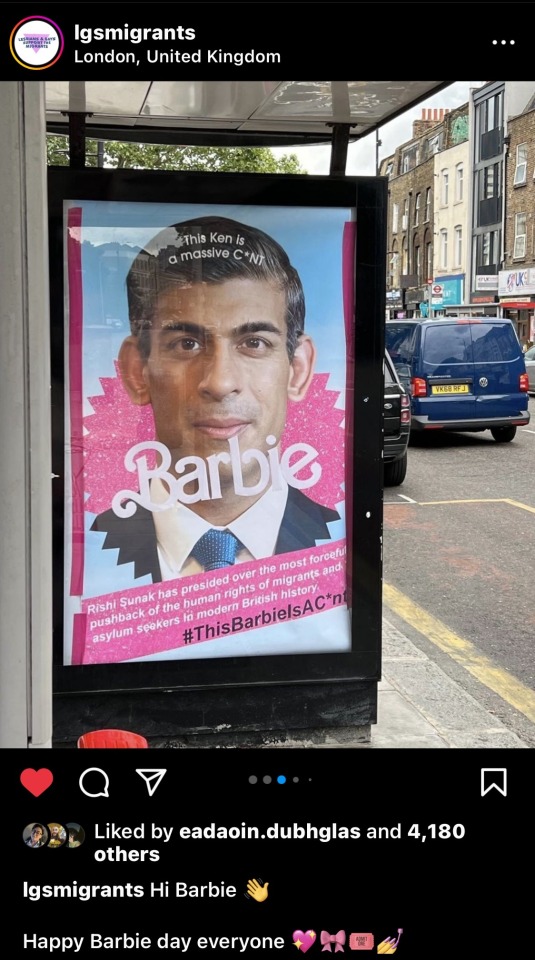
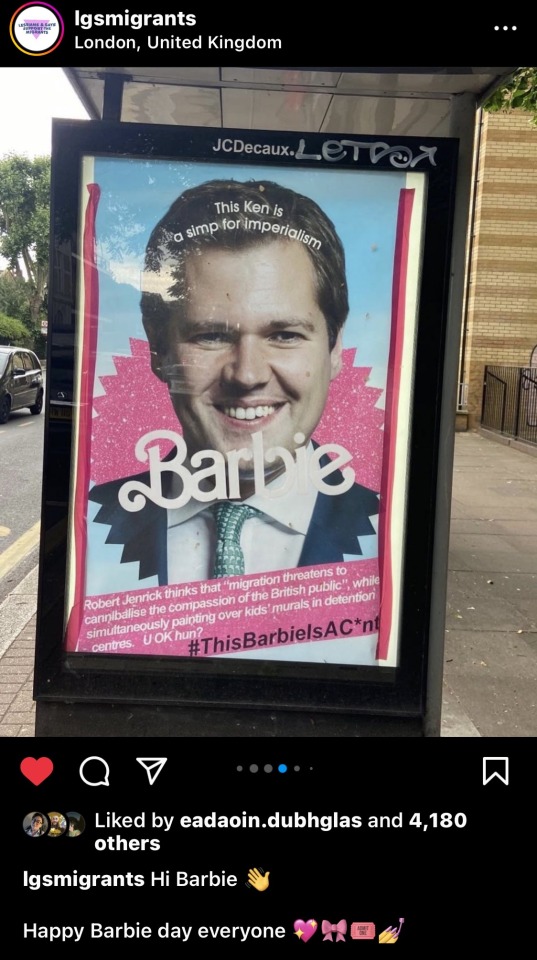
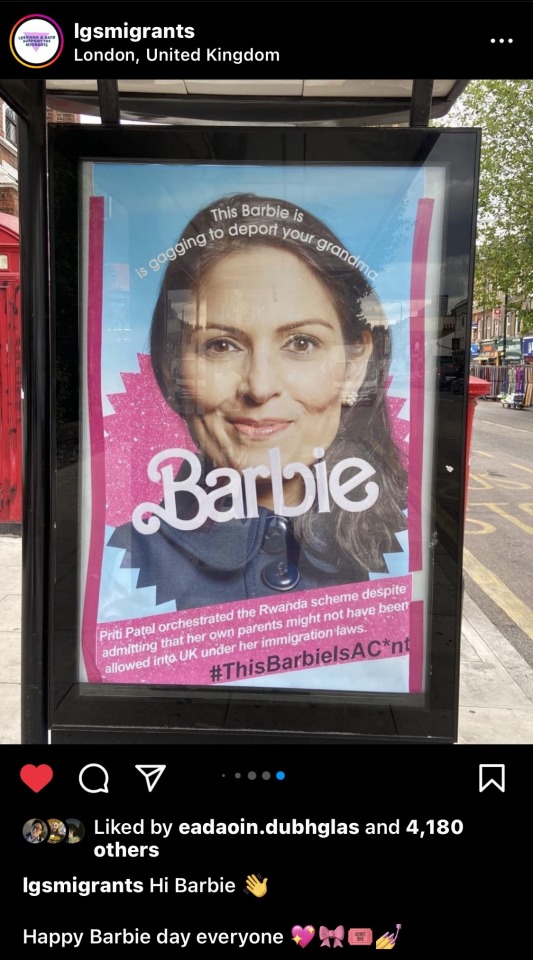
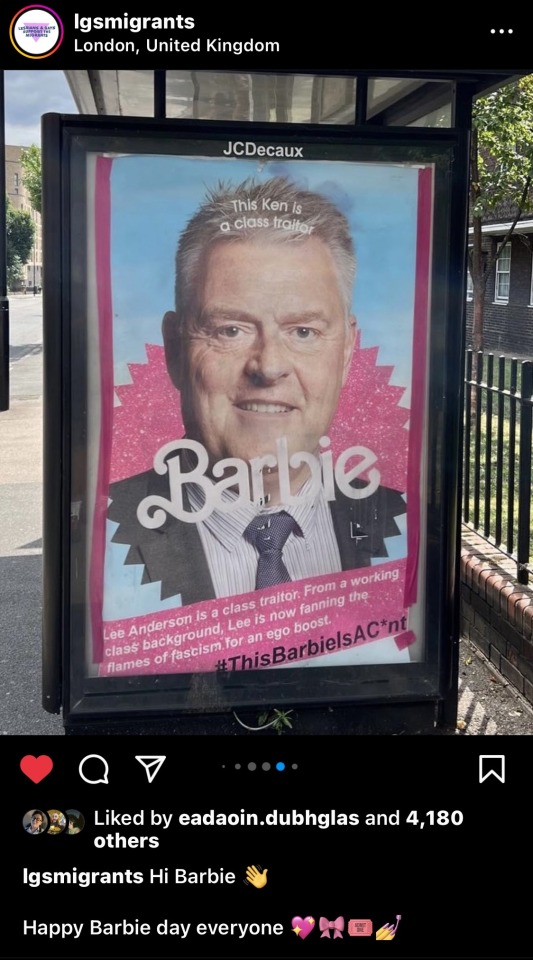
#Barbie#immigration policy#Uk immigration policy#Uk politics#no one is illegal#lgsmigrants#queer direct action#queer solidarity
154 notes
·
View notes
Text
Keir Starmer Proposes Major Overhaul of UK's Immigration System
Keir Starmer’s Plan for Immigration Overhaul British Prime Minister Keir Starmer has announced a commitment to significantly reform the country’s immigration system in response to alarming new data indicating that arrivals have reached an unprecedented high. According to figures released by the Office for National Statistics (ONS) on Thursday, net migration exceeded 900,000 in the year leading up…
#border security#conservative government#human trafficking#immigration reform#Keir Starmer#Migration Advisory Committee#net migration#points-based system#UK immigration policy#Yvette Cooper
0 notes
Text
Health and Care Worker Visa: Brief Guide
The Health and Care Worker Visa is an essential pathway for qualified professionals such as doctors, nurses, allied health professionals, and adult social care workers seeking employment in the UK. As part of the Skilled Worker Visa category, this visa not only enables eligible individuals to contribute to the UK’s healthcare sector but also opens a pathway to settlement after five years. Below,…
#Appendix Skilled Worker#Best Immigration Solicitors London#COS#dependants of skilled worker#DJF Solicitors#eligibility requirements#English Language Requirement#Financial Requirements#health and care worker#health and care worker visa#health surcharge#Home Office#Home Office Updates#Immigration Health Surcharge#Immigration Policy#Lexvisa#london#London Immigration Solicitors#New health and care visa#Skilled Worker#Solicitors#Tuberculosis#UK Immigration#UK Immigration Advice#UK Immigration Policy#UK Immigration Solicitors/ Lawyers
0 notes
Text
The UK Immigration Policy May Have Unintended Consequences
The UK government's stance on immigration, focusing on controlled intake, has economic and social repercussions. Low immigration levels risk labor shortages, hampering economic growth, while potentially affecting the country's global reputation. It may also disrupt the demographic balance, straining public services. Cultural diversity, a key asset, could suffer due to stringent immigration policies. The need for a balanced approach that acknowledges the benefits of immigration while addressing its challenges is essential. A policy embracing immigration's contributions could boost the economy, enrich society, and uphold the UK's reputation as an inclusive nation. Explore the potential unintended impacts of the UK's immigration policy in this insightful analysis.
0 notes
Text
I really wish more schools would teach that elections are, fundamentally, a mathematics problem. and I understand why we don't like to look at it like that because that's a horrible, horrible way to look at the world - far easier to look at voting as a hero's journey, grabbing your sword and standing up against the system, than doing an equation with peoples' lives - but unfortunately that's what democracy is. picking the least shit option not for your own edification, but because if you don’t the more shit option will get in.
like, I can't blame anyone for being mad at a particular party for treating a certain group of people awfully, that just means you have moral standards, but it's a basic fact that before every election you have to do a little maths problem in your head. and for this election cycle that problem looks a little like 'X party causes 100 units worth of harm vs Y party causes 5000 units amount of harm; oh, and either X or Y will win the election regardless of my abstention; sacrificing my vote with abstention or a third party is, sadly, a fantasy for kids; so what am I prepared to do that will result in the least harm done.’
like. that's how it works. it sucks. I get it. I don't know a single country with a voting system that works perfectly. I don’t know of a single example in human history where they got a perfect voting system. there's a reason why democracy is known as being the least bad option out there. it's still the option you need to preserve and engage in.
#important stuff#us politics#uk politics#seeing the posts about how people shouldn't vote for harris because of her stance on palestine makes me think of the uk election#where seeing labour's trans policies and voting for them made me feel ick#but also thinking#'well if I let the tories get in not only do they have shit policies on trans people themselves#they're also fucking over the working class; immigrants; PoC; women; basically everyone APART from the tories and their donors'#because it's a freaking maths problem#Labour caused less harm and may even god willing do some good#so I voted for them because I want less harm and more good
85 notes
·
View notes
Text
The prime minister of the UK has just confirmed that he will change the law to allow the conservative party to forcibly deport immigrants to Rwanda.
The SUPREME COURT of the UK found this policy unlawful, the government were told they CANNOT do this.
Their response? Change the law
This policy is a threat to the lives of refugees who fled here seeking support and asylum, as a country we should be kind and welcoming. Instead these poor people are being sent straight back into the instability and violence they risked their lives to escape.
Rwanda has a history of being used to 'sweep refugees under the rug', having signed a similar deal with Israel. The supreme court found that Rwanda has previously violated laws protecting immigrant against refoulement, as it has sent people back to the nations they fled. Directly violating international treaties and violating the rights granted to refugees and asylum seekers.
Sunak also stated that he will not allow the European human rights court to block this policy and will revisit any treaties that may act as "obstacles" to this policy.
They are trying to get out of THE INTERNATIONAL BILL OF HUMAN RIGHTS! The refugge system in Rwanda is so unsafe that this is a human rights issue! And our government want to violate those rights for thousands of immigrants they are determined not to help.
These people are hell bent on making life miserable for refugees. The deputy chair of the conservatives stated the government should "ignore the law and start the flights anyway".
Rishi Sunak is also introducing "emergency legislation" in order to force this through parliament and the courts.
Where have we heard that before?
These are the same emergency powers that allow laws to be passed without parliamentary votes. The same emergency powers that enabled the "war on terror" so the UK and US could commit war crimes. The same emergency powers used by the nazis to legitimise the holocuase
This is facism! Plain as day.
I am very very worried for the future of my country and the future of this world. Facism is not on the rise, it is here. We must watch very very closely, at home and abroad, so that we can act accordingly and protect ourselves.
#UK politics#rishi sunak#the conservative party#Rwanda policy#immigration#immigrant rights#refugees#refugee rights#political#politics#political rant#leftism#leftist#socialism#socialist#protest#news#political news#uk news
188 notes
·
View notes
Text

#meme revolt#political twitter#rishi sunak#conservative party#asylum seekers#refugees#uk immigration#nhs#national health service#uk nhs#uk asylum policy#uk news#uk politics
125 notes
·
View notes
Text
British Prime Minister Rishi Sunak promised on Monday (April 22) to start sending asylum seekers to Rwanda within 10 to 12 weeks as the upper house of Parliament finally passed required legislation, delayed for weeks by attempts to alter the plan. Sunak said the government had booked commercial charter planes and trained staff to take migrants to Rwanda, a policy he hopes will boost his Conservative Party's flagging fortunes before an election later this year. The House of Lords had long refused to back the divisive legislation without additional safeguards, but eventually relented after Sunak said the government would force Parliament to sit as late into Monday night as necessary to get it passed.
Continue Reading
16 notes
·
View notes
Text
@king-shango-the-great I'll add a little context so we better see whats in the middle and hidden from the worlds view today in Rwanda
2022 Country Reports on Human Rights Practices: Rwanda
just a little bit clipped from the same page as above:
Significant human rights issues included credible reports of: unlawful or arbitrary killings; torture or cruel, inhuman, or degrading treatment or punishment by the government; harsh and life-threatening prison conditions; arbitrary detention; political prisoners or detainees; transnational repression against individuals located outside the country, including killings, kidnappings, and violence; arbitrary or unlawful interference with privacy; serious restrictions on free expression and media, including threats of violence against journalists, unjustified arrests or prosecutions of journalists, and censorship; serious restrictions on internet freedom; substantial interference with the freedom of peaceful assembly and freedom of association, including overly restrictive laws on the organization, funding, or operation of nongovernmental and civil society organizations; serious and unreasonable restrictions on political participation; and serious government restrictions on or harassment of domestic and international human rights organizations.
The government took some steps to prosecute or punish officials reported to have committed human rights abuses and acts of corruption, including within the security services, but impunity involving civilian officials and some members of the state security forces was a problem.
America has worse problems yes, but some of these are supposedly resolved in Rwanda; is that what you say @king-shango-the-great ?
okay readers lets just take one more look at the leader - Paul Kagame a career politician who has been said to be holding onto power by force. 3 seven year terms seems a bit suspicious when no one has come close during recent election cycles. We'll keep looking and hopefully there will be more positive info on his time as President of Rwanda.
sources report that those who are deported here don't even stay due to the conditions -
“They are not given an opportunity to apply for asylum, and even if they wish to stay in Rwanda, their refugee claims cannot be assessed as the national refugee status determination committee has not yet been established.”
And of course there's the local news who is interacting with Mr Kagame - the Guardian is giving us this short piece. this is interesting - all about the Nation of Rwanda and its leader Paul Kagame
theguardian.com
Rwanda: human rights fears in nation whose leader faces murder claims
Peter Beaumont
5–6 minutes

Rwanda, Priti Patel’s planned destination for the processing of migrants arriving in the UK, is a largely rural east African country whose authoritarian president, Paul Kagame, has been accused of seeking to assassinate opponents.
The mountainous and landlocked country of 12 million, which witnessed an appalling genocide in 1994 in which 800,000 people were killed in 100 days, has been a recipient of generous development aid in the decades since.
Kagame has been feted by supporters in the west for his role in ending the genocide and for reducing poverty, though some critics have questioned the statistics.
But his leadership has come under increased scrutiny in recent years, especially over accusations that he orchestrated the kidnapping and murdering of his political opponents in order to eliminate challengers to his rule – accusations he denies.
One of Kagame’s most prominent alleged victims was his former intelligence chief Patrick Karegeya, who was strangled in a hotel room while living in exile in South Africa in 2014.
Rwanda’s former army chief of staff Kayumba Nyamwasa – who also went into exile in South Africa – has survived two assassination attempts blamed on Kagame.
More recently Rwanda was accused of kidnapping the opposition figure Paul Rusesabagina from Dubai and subjecting him to what critics said was a “show trial”. Rusesabagina, whose lifesaving actions during the genocide were depicted in the film Hotel Rwanda, was sentenced to 25 years in prison in September after being convicted of terrorism offences by a court in Rwanda’s capital, Kigali. The US state department said it was “concerned” over the “fairness of the verdict”. In July last year the Guardian reported that Rusesabagina’s daughter, Carine Kanimba, had been spied on using Pegasus malware developed by the Israeli company NSO.
The British police have warned Kagame critics living in the UK that their lives may be in danger.
Despite well-documented concerns about Rwanda’s human rights record, Kagame has long enjoyed vigorous support from UK politicians – from the Conservative and Labour parties.
Rwanda’s record in hosting refugees from DRC has in the past come under scrutiny. In 2018, Rwandan police killed 12 refugees after a demonstration outside the offices of the UN high commissioner for refugees in Karongi district.
Rwanda’s previous involvement in receiving African deportees from Israel raises serious concerns over whether – even with the UK’s reported £20m funding – it has the resources or even willingness to host deportations.
Of about 4,000 people estimated to have been deported by Israel to Rwanda and Uganda under a “voluntary departure” scheme between 2014 and 2017, almost all are thought to have left the country almost immediately, with many attempting to return to Europe via people-smuggling routes.
In addition, at least one deportee still in Rwanda, tracked down by Israel’s Haaretz newspaper in 2018, described being destitute and living on the streets of Rwanda’s capital, Kigali.
Clouded in secrecy, and with Rwanda officially denying its involvement, details of the arrangement with Israel and the fate of some of those deported have been described in several reports, some of which included testimony from those who said they had been sent to Rwanda.
Critics at the time, including the rights group Amnesty International, also pointed out that Israel had a far smaller number of refugees than Rwanda, and was a much wealthier country. Amnesty accused Israel of “foisting its responsibility on countries who have only a fraction of the wealth and resources”.
A report by the International Refugee Rights Initiative interviewed a number of individuals who said they had been deported from Israel to Rwanda.
Testimonies collected by IRRI suggested “that the majority, if not all, are being smuggled out of the country by land to Kampala [in Uganda] within days of arriving in Kigali.
“They are not given an opportunity to apply for asylum, and even if they wish to stay in Rwanda, their refugee claims cannot be assessed as the national refugee status determination committee has not yet been established.”
Among the very few deported from Israel voluntarily who did opt to stay was a 28-year-old Eritrean man named Goitom, who spoke to Haaretz newspaper in Kigali in 2018. He had not been allowed to work and was living on the streets.
“Things are so bad. I am living very badly. I have no home, there is no work,” he told the paper. “Before, there were a few people who helped me. The United Nations also helped – they gave me money for lodging and food. But they stopped.”
Rwanda's immigration policy has been a failure, according to a new report by the United Nations. The report found that the policy has led to the arbitrary detention and deportation of refugees, as well as the separation of families.
The report, which was released on Tuesday 4/4/2023, said that Rwanda's immigration policy is "inconsistent with international human rights law and standards." The report also said that the policy has "serious negative consequences for refugees and asylum-seekers."
The report found that Rwanda has arbitrarily detained refugees and asylum-seekers, often without charge or trial. The report also found that Rwanda has deported refugees and asylum-seekers to countries where they face persecution.
The report also found that Rwanda has separated families, often by deporting one parent and leaving the other parent and children in Rwanda. The report said that this has caused "immense suffering" for families.
The report called on Rwanda to end its arbitrary detention and deportation of refugees and asylum-seekers. The report also called on Rwanda to reunite families that have been separated by the country's immigration policy.
The report is the latest in a series of reports that have criticized Rwanda's immigration policy. In 2018, the United Nations Committee against Torture said that Rwanda's immigration policy "violates the principle of non-refoulement" and "exposes refugees to a real risk of torture."
In 2019, the United Nations Human Rights Council said that Rwanda's immigration policy "violates the principle of non-refoulement" and "exposes refugees to a real risk of persecution."
Rwanda's government has defended its immigration policy, saying that it is necessary to protect the country from terrorism and other threats. However, human rights groups have said that the policy is cruel and inhumane.
The report's findings are likely to further pressure Rwanda to change its immigration policy.
@king-shango-the-great I'll be looking forward to your response with cited sources and news if you please, so we can be assured YOU Will Be Alright When YOU Move to Rwanda, as you say you plan to.
Be Careful making decisions on relocation fam until you have a real picture of a country, which includes staying there for several months; and experiencing the way it really is, instead of how it appears when you are a tourist on a short term visa visit.
UK home secretary "Cruella" says Rwanda is safe for asylum seekers
Britain’s interior minister, Suella Braverman, says she is convinced Rwanda is a safe country for the resettlement of asylum seekers, but she has declined to set any deadline for the first deportations there.
The British government is hoping to send thousands of asylum seekers more than 6,500km (4,000 miles) away to the East African country as part of a 120-million-pound ($148m) deal to deter people from crossing the English Channel from France in small boats.
The plan was announced in April last year, but the first deportation flight was blocked by an injunction from the European Court of Human Rights.
#Rwanda#Paul Kagame#UK Immigration Policy#priti patel#@king-shango-the-great#forced deportations#Africans seeking refuge#Refugee Crisis
12 notes
·
View notes
Text

#migrants#migration#timeline of policy and legislative changes affecting migration to the uk (1983-2024)#united kingdom#immigration#electronic immigration network
4 notes
·
View notes
Text
Rescued migrants in Channel
More than 50 migrants have survived after an engine failure in the Channel, while two bodies have been found at sea. Investigation by the Boulogne-sur-Mer prosecutor’s office into a boat found by the French coastguard.
The French coastguard says it launched a rescue operation after the boat’s engine failed.
The rescue team managed to save 51 people who were taken to the dock in Boulogne-sur-Mer and given medical treatment. At the same time, a body was reported to the French authorities on Tuesday, after which 2 more bodies were found by a patrol boat.
It has not yet been established whether the bodies belong to migrants or not. The prosecutor’s office in Boulogne-sur-Mer has opened an investigation into the case. The number of migrants killed crossing the English Channel this year totals 50, according to a statement by the French coastguard.
In addition, according to the International Organisation for Migration (IOM), 11 more migrants have died in similar situations.
Refugee organisations report that migrant deaths have increased. They have asked the government for help in developing safe routes for people to travel in order to save the lives of migrants. Around 263 people arrived in the UK on Wednesday by boat. This brings the total number of migrants for the year to 31,535, according to the Home Office.
Read more HERE

#world news#news#world politics#europe#european news#uk#uk politics#uk news#england#united kingdom#english channel#migration#migrants#migrant crisis#migration policy#migration services#migration crisis#immigration services#immigration policy#immigrants#politics
2 notes
·
View notes
Text
UK Fiancé(e) and Proposed Civil Partner Visa
The UK Fiancé Visa is a unique visa category for individuals intending to marry or enter into a civil partnership with a British citizen or a settled person in the UK. This visa allows the foreign national to stay in the UK for six months, during which time they are expected to formalize their relationship. Following this, applicants can transition to a Spouse Visa, which enables them to remain…
#Best Immigration Solicitors London#British Citizen#Civil Partnership visa#DJF Solicitors#English Language Requirement#Fiancé visa#Financial Requirements#Home Office#Home Office Updates#Immigration Lawyers London#Immigration Policy#Lexvisa#london#London Immigration Solicitors#Marriage in UK#Partner of Settled Person#Spouse Visa#UK Fiancee Visa#UK Immigration#UK Immigration Advice#UK Immigration Policy#UK Immigration Solicitors/ Lawyers
0 notes
Text
An Honest Conversation
It’s Time to Tell the Truth About U.K. Migration

Source: Briefings for Britain
By Honest John
A NEW government should provide the opportunity for new narratives, particularly after the waste and poison of the Tory years. Perhaps most toxic messaging of the seemingly limitless populist nastiness that the Conservative Party tried to promote in its end years in government was that of the intrinsic evil of immigration, aided every step of the way by the knowing racist cynics of Reform U.K., the Daily Mail, GB News, plus numerous “influencers” and far right commentators filling their social media platforms with faux anger, othering and outright hatred. In fact Richard Tice in the aftermath of the mob law masquerading as patriotic protest last month, urged Keir Starmer to have an “honest conversation” about immigration with the British people. For probably the first time, I find myself agreeing with former leader of Reform: it is high time that the government led an adult conversation about both immigration and asylum seeking with the U.K. population, but not from the perspective of Tice’s fake news: rather from the standpoint of fact.
It is frequently said - not least by commentators on the left - that governments should not try to “educate” the electorate on issues of policy - such an approach is held to be condescending and bound to fail. But if the role of government is not to lead debate, but simply to follow it, despite the fact public opinion maybe characterised by half-truths, false logic, prejudice and conspiracy theory, then what is the role of democratic government at all?
The Right have no such qualms. Whether it is the openly fascist social media activists, the childish provocateurs of GB News, the raging reactionaries of the Mail and the Telegraph, the opportunistic culture warriors of Reform or the sad shambles of the pre-election Tory government, the right wing in this country has majored in lies, deception, false narratives, bogus causations and thinly disguised racism when it comes to discussing immigration and asylum seeking. If a social democratic government, with four years of its term to run and a huge majority, cannot take on the mendacity of the Right in this area, then who can?
Any such counter-narrative should deconstruct the three most obvious and artless propositions of the Right. First, the deliberate and cynical conflation of asylum seeking with general immigration, which are, in fact, very different phenomena; the claim made continually by Nigel Farage during the General Election campaign that the U.K. is experiencing a “population explosion” driven entirely by immigration and the truism, accepted by both Conservatives and Labour and a majority of the population, that migration is “too high”. Although all three contentions are widely repeated, often without challenge by the mainstream media, the third claim is the most widely accepted by people at large, to the extent it is now treated as indisputable fact.
Let’s start with asylum seeking. The general view is that asylum seekers are illegal, disproportionately male and bogus. Also asylum seekers are feather-bedded by a weak system that puts them up in hotels, grants them benefits and does little to control their movements. Other, more extreme tropes follow, promoted by the Right, asserting that they are criminal, terroristic, leeching and generally undesirable. If they are Muslim, then they constitute an existential threat to British values.
Although it is often stated that in a world of conspiracy theory, echo chambers and alternative facts, there is little point is attempting to point out the truth to combat such toxic assertions, in actuality, stating the facts of a disputed issue can be remarkably effective. It is true that many asylum seekers, particularly those making the crossing from France in the notorious “small boats” are illegal. This of course is inevitable, since the Conservatives shut down all legitimate routes into the country except for refugees from Ukraine, Hong Kong and Afghanistan in the aftermath of the Western withdrawal. No other refugees, despite their rights under international law to apply for asylum anywhere, can enter the U.K. legally. In other words, the “problem” of illegal asylum seekers is entirely the creation of the British government, when under international law, “illegal” asylum seeking does not exist. Secondly, the numbers of asylum seekers entering the country remains remarkably small: between 75,000 and 80,000 people claim asylum in the U.K. annually, set against a total migration figure of 1.2 million foreign entrants in 2023 and of a national U.K. population of 67 million people. Despite the deliberate slow down in processing claims instituted by the Tories, partly due to austerity funding reducing capacity to do so, Brexit ending the ability to process claims in France and the then government’s populist urge to keep the issue bubbling, nearly 60% of claimants end up having their claims for humanitarian protection under international law granted; the rest are deported. Interestingly, despite the populist trope to the contrary, the gender balance of those successfully claiming asylum in the U.K. is approximately 50/50 (failed claimants are much more likely to be male). As at 2022, asylum seekers in the U.K., including those waiting for claims to be processed, comprised 0.6% of the total population.
The countries asylum seekers come from include Iran, Afghanistan, Bangladesh, Vietnam and Pakistan - all countries that are either authoritarian, have poor human rights records or are actively involved in political, cultural, religious or ethnic oppression. Britain’s obligations in this sphere date back to the 1951 Refugee Convention and are not disputed. By constantly creating hurdles to asylum claims and deliberately making such claims illegal, Britain itself is arguably in breach of international law.
Therefore in terms of numbers and legitimacy, the issue of illegal asylum seeking is largely confected. The scandal is not the uncontrolled arrival of bogus claimants, but the wholly deliberate disruption of the UK’s existing systems in a search for populist votes by a Conservative Party that lost what remained of its moral compass. But Labour’s record is hardly noble: the Blair government also did its utmost to stigmatise some of the most vulnerable people on the planet. What can the Starmer government do to make amends, change the narrative and draw the poison from this dead-end “debate”?
The first action is so obvious as to barely need stating. Although Labour feel more comfortable spouting tough rhetoric about “smashing the criminal gangs”, when the U.K. now barely has a cross-border anti-organised criminal groups agreement thanks to the feebleness of Boris Johnson’s Brexit “deal”, its energies would be more productively directed if the government simply restored safe and legal routes into the country for asylum seekers. The entirely invented “problem” of “illegal” entry would vanish overnight, along with the traffickers’ business model, and the small boats. What refugee would prefer to hand over their life savings to a criminal gang member in return for a leaky dingy than to buy a cross-Channel ticket by plane or ferry in order to secure entry to the U.K. ? It amazes me that Labour have yet to do this and I can only assume it is running scared of Farage as usual. However, without the daily sight of “small boats” arriving on British shores on people’s TV screens, populist antipathy may dissipate, and the long process of humanising the asylum seeker may begin.
Labour is absolutely right to highlight the deliberate and incompetent permitting of claimant backlog to grow by the previous government. Increased funding and workforce to process claims within a fortnight, which was the norm before Cameron’s witless austerity (waits can currently last over a year), would soon see the closure of hotels to house those awaiting their claims to be dealt with, and successful claimants admitted to British society, and unsuccessful ones sent back to their countries of origin. Very quickly the issue that has driven hatred and lynch mobs would cease even to be visible and Britain will have rejoined the community of civilised nations, helping those in greatest need.
Immigration has only a tangental relationship to asylum seeking. Immigration is fundamentally an economic phenomenon: people emigrate in order to find work, not claim benefits, certainly not from Britain’s labyrinthine and punitive welfare system. There is barely a country in the developed world that does not rely on migrant labour to keep aspects of its industrial or service economy going. The fact of low unemployment and unfilled vacancies in the U.K. and the associated fact that sectors such as health and care, deliveries and supply, agriculture and hospitality would simply collapse if all immigration ceased tomorrow, seems to pass many anti-migration bigmouths by. Even when forced by the sheer facts of economic reality to conceded that some migration is required to keep the country’s lights on, these non-experts will still opine that immigration is “too high”. This contention is decades old and so regularly repeated, that this evidence-free assertion has squeezed out any countervailing view. When the politicians and media sagely agree that immigration is too high, by what criteria is the assertion justified? By the number of vacancies in the country proportionate to the workforce available to fill such vacancies? By the relative importance of the various sectors that employ migrants to the overall health of the economy? By the level of verified pressure on public services in those areas where migrants settle? By the level of social strain brought about by the arrival of migrants from different cultures? The short answer is none of the above. To ask such questions would complicate the facile acceptance that migration must be reduced, regardless of truth or implications. The failure of the U.K. to have a mature or factual conversation about what immigration actually is, let alone its required numbers, is one of the biggest indictments of the British political class. It is simply easier to indulge ignorance, prejudice or rank racism than to challenge popular assumptions and state clearly what levels of immigration the country needs and how the phenomenon needs to be managed.
Similarly, the Farageist trope that the country is “full” or that the U.K. is experiencing a population explosion is similarly left unchallenged. In fact, the British population usually increases by about 0.33% a year. That is an annual increase of approximately 210,000 people a year - a gradual rise, not an “explosion”. Even this figure needs to be treated with caution given the government’s bizarre inclusion of foreign students in the calculations, the majority of whom return home after their studies. This zero sum game has resulted in ridiculous promises by (usually Tory) governments to reduce immigration, regardless of the impact of the economy by so doing. The Thatcherite model endured by the U.K. for nearly 40 years has been predicated on low wage, non-unionised and mobile workforces, most easily filled by foreign migration. If the country seriously wants to reduce the number of foreign migrants in the country, perhaps it needs to stop blaming people who are responding to demand and rather re-think its economic model.
Labour needs to end this circular and destructive non-debate, which at best feeds the lack of trust in politicians and at worse results in ethno-nationalist violence on the streets. A blunt and fact-based conversation needs to led by government, pointing out that every advanced economy requires a minimum level of migration to keep industries and services going and that this will never change. There can be a debate about numbers and geographical location of migrants, but simplistic slogans about “reducing” migration are as fatuous as they are impractical. Release of proper research and explanations as to what migration numbers should be on the basis of workforce requirements by sector and geography, public infrastructure, cultural assimilation, and the needs of national economic strategy, should comprise part of the “re-set” Keir Starmer has promised the nation.
Labour still seems gripped by fear of the issue, believing that to be seen as being “soft” on immigration is political suicide. Instead, it should study the results of the 2024 General Election - for all Farage’s megaphone politics on the issue and the divisive populism of a desperate Conservative Party, over 57% of the electorate voted against this toxicity. As the spontaneous response to the summer riots demonstrated, there is a clear majority in this country that recognise the inevitability and desirability of migration and the moral imperative to admit those seeking asylum from death or oppression. After all, Labour has been here before: in the 1960s, Harold Wilson’s government legislated for racial, gender and sexuality justice, in the teeth of ferocious popular and right-wing opposition. It nonetheless led a debate that, over time, produced societal tolerance and a measure of equality for non-white citizens, women and gays. The cul-de-sac the immigration wars have led the country into have fostered ignorance and racism and enabled street fascism and the politics of the pogrom. The survival of British democracy and its values of inclusivity and social justice demand an end to the stupidity and lies of the current contentions concerning migration. Keir Starmer’s government is in a unique position to help the country forge a different path.
The question is: does our new Prime Minister have the stomach for the fight?
2nd September 2024.
#british politics#migration policy#immigration#reform uk#new labour government#keir starmer#asylum seekers#asylum policy
2 notes
·
View notes
Text
looking at the ballot for the uk elections was the most depressing thing in the world. literally no one is worth voting for. i hope this country burns tbh
#the only party with a good palestine policy is the worker's party#and george galloway is a homophobic/transphobic mess#we used to actually have a left leaning labour now all weve got is one that wants to kill palestinians/immigrants and trans people#literally no one is worth voting#uk elections
4 notes
·
View notes
Text
omg I can’t believe hulks are making a comeback
#ok but fr who tf is supporting a victorian criminal punishment being used on immigrants#it’s insane#british politics#uk#uk politics#all these piss poor immigrant policies#the government seem to absolutely love defenestrating ethics
8 notes
·
View notes
Text
Oh wow another random blog on tumblr
I go by Boomstick but feel free to also call me Kacper. My interests range anywhere from gaming , to music, to sociology etc etc… although I expect this to mostly be a space for me to post ramblings about politics and/or policy, another two interests of my.
About me:
• I use He/Him pronouns.
• 🇵🇱 in 🏴.
• My birthday is on the 22nd of August.
• I am currently studying sociology, psychology and law although I am really really close to graduating and moving onto uni.
• I aim to study Politics and International Relations and then pursue a career in the British civil service.
I’m gay.
I have a unironic crush on Owen Jones.
That being said I should probably reveal some information about my beliefs:
• I am on the “left” of the political spectrum.
• Rosa Luxemburg and Jeremy Corbyn are my two main political inspirations.
• Former Labour and People’s Momentum Member.
I am currently not a member of any national party.
“Ye are the many - they are the few”
- Percy Bysshe Shelley
#jeremy corbyn#Corbyn#momentum#peoples momentum#Rosa#luxemburg#rosa luxemburg#immigration#Poland#uk#England#Manchester#Lancashire#sociology#politics#psychology#policy#social justice#socialism#Marx#Karl Marx#Marxist#environmentalist#Labour#Leo#IR#international#international relations#owen jones
2 notes
·
View notes